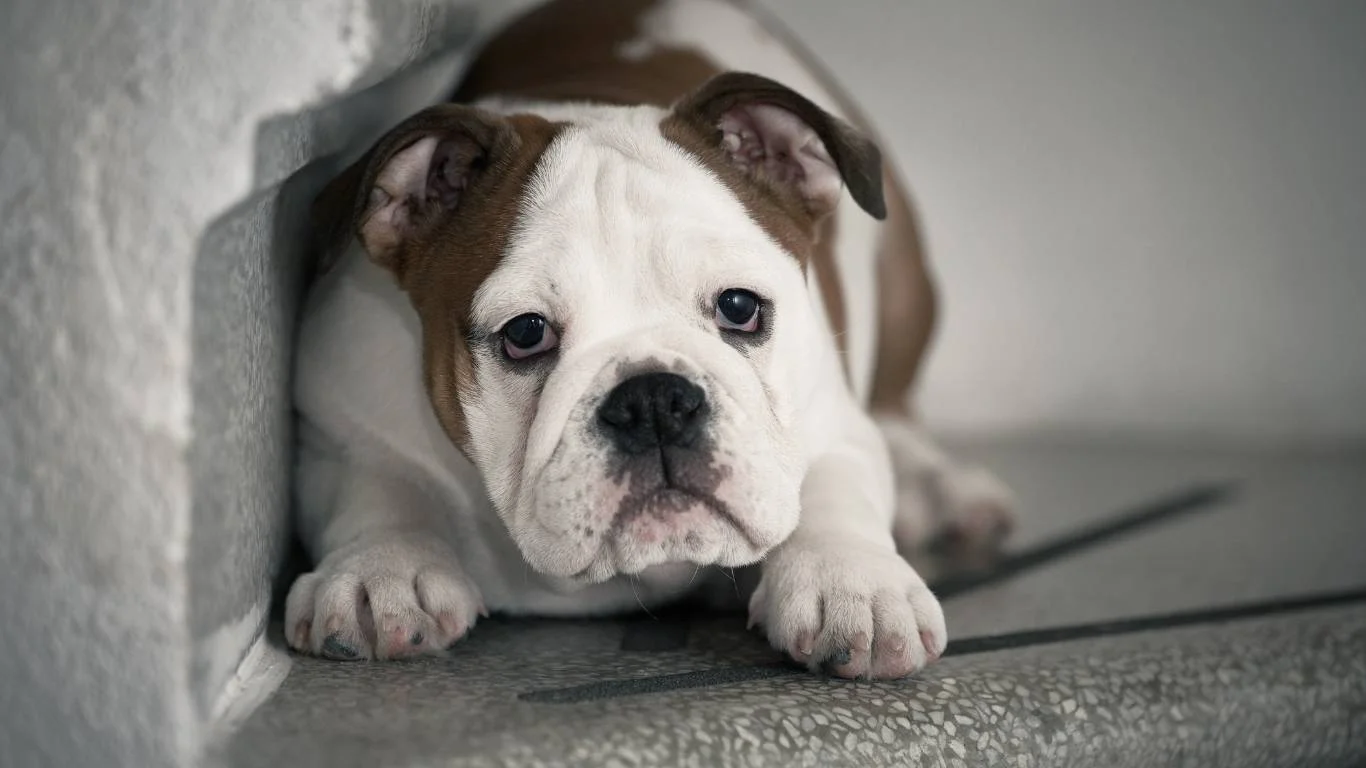What to Do If Your Dog’s Breath Smells Like Metal: Expert Tips to Fix It Fast
If you’ve ever caught a whiff of your dog’s breath and thought, “Whoa, why does it smell like metal?” you’re definitely not alone. As a Veterinary Assistant with a focus on nutrition, I’ve seen quite a few puzzled pet parents walk in with this exact question. What to do if your dog’s breath smells like metal isn’t just a quirky curiosity—it’s something that can signal underlying health issues worth paying attention to. In this article, I’m going to break down the possible reasons behind that strange metallic scent and share practical tips you can try at home, based on years of hands-on experience in vet clinics.
Why Does My Dog’s Breath Smell Like Metal?

First off, it’s important to understand that a metallic odor coming from your dog’s mouth isn’t normal and shouldn’t be ignored. It can stem from a variety of causes, ranging from minor to more serious health concerns. From personal experience, many pet owners overlook this because they think it’s just “dog breath,” but that metallic hint is a red flag worth exploring.
Common Causes of Metallic Breath in Dogs
- Dental issues: Gum disease, tartar buildup, or infected teeth can cause unusual odors, including metallic smells. I’ve seen cases where neglected dental hygiene led to severe infections that made the breath smell downright alarming.
- Oral wounds or ulcers: If your dog has a cut or sore inside their mouth, it might bleed slightly or cause bacteria to produce that metallic scent.
- Kidney problems: In some dogs, a metallic or ammonia-like breath can hint at kidney dysfunction. Since kidneys filter waste from the blood, any trouble here can cause toxins to build up and affect the breath.
- Blood in the mouth: Sometimes, bleeding gums or mouth injuries release blood, which has a natural metallic smell. This can happen if your dog chews on something sharp or abrasive.
- Diet and supplements: Occasionally, certain diets, supplements, or medications can alter your dog’s breath odor. For example, iron supplements or some multivitamins might contribute to a metallic smell.
How Nutrition Plays a Role
During my years assisting vets, I’ve noticed how diet directly influences a dog’s oral health and breath. Poor nutrition can weaken the immune system, making your furry friend more vulnerable to infections or dental issues that cause that metallic whiff. Conversely, a balanced diet rich in antioxidants, vitamins, and minerals supports healthy gums and fresh breath. It’s amazing how small tweaks in food choices can make a big difference.
What to Do If Your Dog’s Breath Smells Like Metal

So, you’ve noticed that metallic breath—now what? It’s tempting to just brush it off or hope it goes away, but taking action is key. Here’s what I usually recommend to dog owners who come in with this concern:
Step 1: Check for Obvious Signs
- Look inside your dog’s mouth carefully. Are the gums red, swollen, or bleeding? Is there anything stuck between their teeth?
- Observe your dog’s behavior—are they drooling excessively, pawing at their mouth, or having trouble eating?
- Note any changes in appetite, energy level, or bathroom habits, especially if you suspect kidney issues.
Step 2: Improve Oral Hygiene
One of the most straightforward things you can do at home is improve your dog’s dental care routine. Regular brushing with a pet-safe toothpaste can drastically reduce plaque and tartar buildup, which are common culprits behind bad breath smells. I always encourage owners to make this a daily habit—trust me, it pays off. Plus, dental chews and special diets designed for oral health can provide extra help.
Step 3: Visit Your Veterinarian
If the metallic smell persists or you notice any of the concerning symptoms mentioned earlier, it’s time for a professional checkup. A vet can do a thorough oral exam, run blood tests to check kidney function, and identify any infections or injuries that aren’t obvious to the naked eye. Early diagnosis can prevent complications down the line, so don’t wait.
Digging Deeper: Medical Causes Behind Metallic Breath

While dental problems are the usual suspects when it comes to weird dog breath, it’s important to remember that what to do if your dog’s breath smells like metal may involve looking beyond just the mouth. In my experience working alongside vets, a metallic smell can sometimes point to more complex health issues that require prompt attention.
Kidney Disease and Its Impact on Breath Odor
One of the more serious causes behind metallic-smelling breath is kidney disease. The kidneys are responsible for filtering toxins out of the bloodstream, so when they aren’t working properly, those toxins build up and can cause a distinct, unpleasant breath odor—sometimes described as metallic or ammonia-like. I remember a client who brought their golden retriever in because of this exact symptom, and it turned out to be an early sign of kidney trouble.
Some signs that could accompany this issue include increased thirst and urination, lethargy, and changes in appetite. If you notice any of these along with that metallic breath, getting your dog to the vet sooner rather than later is crucial.
Oral Trauma or Bleeding
Another cause I often encounter involves blood in the mouth. Whether from a small cut caused by chewing on something hard or an ulcer, blood naturally carries a metallic scent because of its iron content. This is a good reminder to regularly check what your dog is chewing on—some sticks or bones can cause cuts that go unnoticed until the smell shows up.
When you spot any bleeding or sores in your dog’s mouth, keep an eye on them and consult your vet if it doesn’t heal quickly or if your dog seems in pain or reluctant to eat.
Simple At-Home Care Tips to Freshen Your Dog’s Breath

Now, I know not every dog owner can run to the vet at the first whiff of funky breath, so here are some tried-and-true tips I’ve shared countless times to help improve your dog’s breath at home while keeping things safe and stress-free:
1. Regular Brushing
It sounds basic, but brushing your dog’s teeth regularly is the single best thing you can do to keep breath fresh. I always tell pet parents, start slow—use a pet-specific toothbrush and toothpaste (never human toothpaste!) and make it a positive, rewarding experience with lots of praise or treats.
2. Dental Chews and Toys
Dental chews are more than just treats—they help reduce plaque and keep gums healthy. My experience has shown that dogs love them, and they’re a handy supplement to brushing, especially if your dog isn’t the biggest fan of the toothbrush.
3. Balanced Diet and Hydration
Feeding your dog a balanced diet rich in nutrients supports their overall health, including oral health. I’ve seen dogs on poor diets develop stronger odors due to compromised immunity and oral infections. Also, always make sure your dog has access to fresh water—hydration helps flush out bacteria and keep breath cleaner.
4. Natural Add-Ons
Some pet owners ask me about adding fresh herbs like parsley or mint to their dog’s meals. While these can sometimes help mask odors temporarily, they shouldn’t replace proper oral care. However, they’re generally safe and might offer a little boost to your dog’s breath freshness.
When to Seek Veterinary Care

If you’ve tried the at-home tips but your dog’s breath still smells like metal, or if you notice any of the worrying symptoms like bleeding gums, excessive drooling, or changes in behavior, it’s time for a professional evaluation. Vets can perform a full oral examination under sedation if needed, take blood work to check organ function, and recommend treatments tailored to the underlying cause.
Trust me, early intervention often means simpler treatment and a happier, healthier dog. From personal experience, I’ve seen dogs bounce back quickly when their dental problems were addressed early or when a chronic condition was caught before it worsened.
Diagnostics You Might Expect
- Oral exam and dental cleaning under anesthesia
- Blood tests to check kidney and liver function
- X-rays of the mouth or abdomen if needed
- Urinalysis to evaluate kidney health
By working closely with your vet and being proactive, you can help your furry friend breathe easier—and fresher!
Long-Term Care and Prevention: Keeping Your Dog’s Breath Fresh and Healthy

Now that we’ve covered what to do if your dog’s breath smells like metal, it’s just as important to focus on how you can prevent this problem from cropping up again. Prevention truly is the best medicine when it comes to your furry friend’s oral and overall health. Over the years, working alongside veterinarians and nutritionists, I’ve learned that a combination of good habits, routine care, and attentive observation makes all the difference.
Routine Dental Care: The Cornerstone of Prevention
One thing I always emphasize to pet parents is making dental hygiene part of your dog’s regular routine—not just when problems arise. Brushing their teeth daily or at least several times a week is a game changer. Don’t worry if your dog isn’t a fan at first; start slow and keep sessions short and positive. Use toothpaste formulated specifically for dogs—human toothpaste can be toxic.
Dental chews and toys designed to reduce plaque buildup are also fantastic tools. When I worked in the clinic, I noticed dogs who got these regularly had much healthier mouths and less stinky breath overall.
Regular Veterinary Checkups
Even if your dog seems healthy, annual veterinary visits are essential. Vets can spot early signs of dental disease, kidney issues, or other conditions that might cause metallic breath before they become serious. Sometimes, these problems are silent, and only a professional exam or blood test can reveal them.
Scheduling dental cleanings under anesthesia when recommended by your vet is another important step. Though it might seem intimidating, it’s often the only way to thoroughly remove tartar and assess oral health deeply.
Nutrition and Hydration: Feeding for Fresh Breath
Remember, a dog’s diet impacts more than just their waistline—it influences oral health and breath too. I’ve seen dogs on high-quality, balanced diets with natural ingredients tend to have fresher breath compared to those on lower-quality kibble loaded with fillers and artificial additives.
Hydration also plays a role. Drinking plenty of clean water helps wash away food particles and bacteria, keeping the mouth cleaner. Adding water fountains or multiple water bowls around the house encourages your dog to drink more, which I always recommend.
When You Need to Take Action Immediately

Of course, there are moments when you shouldn’t wait around. If your dog’s breath smells like metal and is accompanied by any of these symptoms, seek veterinary care right away:
- Sudden or severe bad breath with a metallic tone
- Bleeding from the gums or inside the mouth
- Difficulty eating, chewing, or swallowing
- Excessive drooling or pawing at the mouth
- Lethargy, vomiting, or changes in urination and thirst
These signs might indicate infection, injury, or organ problems that require prompt diagnosis and treatment. From what I’ve witnessed firsthand, addressing these early can save your dog from discomfort and more serious health issues.
Understanding Your Role as a Pet Parent
Being the eyes and ears for your dog’s health means paying attention to subtle changes. Breath odor is one of those clues that often gets overlooked but can tell a lot about what’s happening inside their body. Taking your dog’s breath seriously and following the steps we discussed not only improves their comfort but also helps them live a longer, healthier life.
References & Trusted Resources
- American Veterinary Medical Association (AVMA)
- American Animal Hospital Association (AAHA)
- American Gastroenterological Association
- American Veterinary Dental College (AVDC)
Disclaimer
The information provided in this article is for educational purposes only and is not a substitute for professional veterinary advice. If your dog’s breath smells like metal or if you notice any signs of illness or distress, please consult your veterinarian promptly. Early diagnosis and treatment are key to ensuring your pet’s health and well-being.






